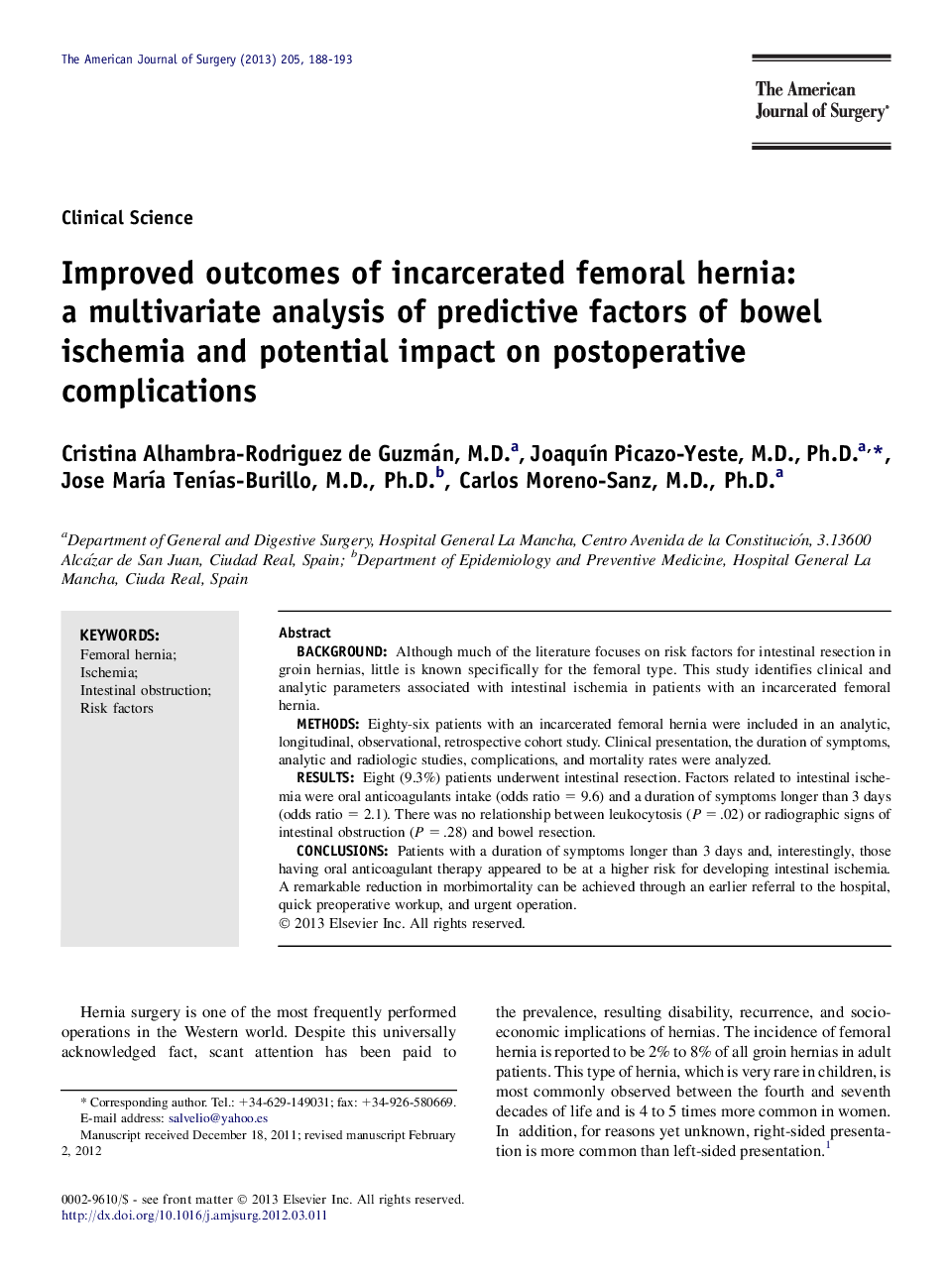| Article ID | Journal | Published Year | Pages | File Type |
|---|---|---|---|---|
| 4279510 | The American Journal of Surgery | 2013 | 6 Pages |
BackgroundAlthough much of the literature focuses on risk factors for intestinal resection in groin hernias, little is known specifically for the femoral type. This study identifies clinical and analytic parameters associated with intestinal ischemia in patients with an incarcerated femoral hernia.MethodsEighty-six patients with an incarcerated femoral hernia were included in an analytic, longitudinal, observational, retrospective cohort study. Clinical presentation, the duration of symptoms, analytic and radiologic studies, complications, and mortality rates were analyzed.ResultsEight (9.3%) patients underwent intestinal resection. Factors related to intestinal ischemia were oral anticoagulants intake (odds ratio = 9.6) and a duration of symptoms longer than 3 days (odds ratio = 2.1). There was no relationship between leukocytosis (P = .02) or radiographic signs of intestinal obstruction (P = .28) and bowel resection.ConclusionsPatients with a duration of symptoms longer than 3 days and, interestingly, those having oral anticoagulant therapy appeared to be at a higher risk for developing intestinal ischemia. A remarkable reduction in morbimortality can be achieved through an earlier referral to the hospital, quick preoperative workup, and urgent operation.
